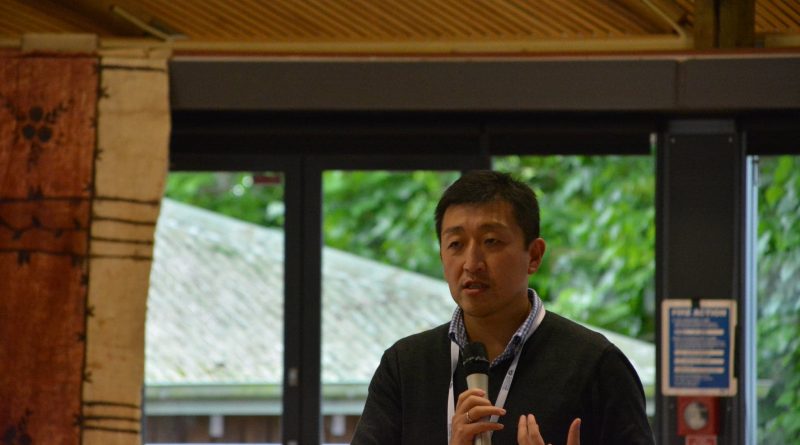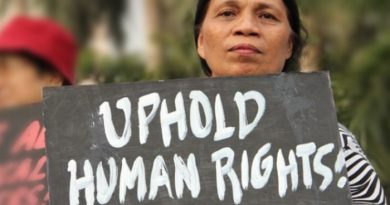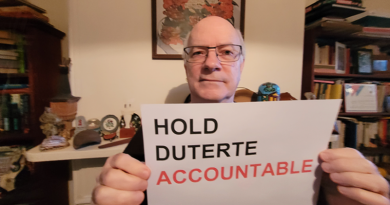Post 2021 Olympic: Japan, where is it headed?
Interview with Dr. Kim Kyung-mook at Waseda university
The questions were prepared by D. Yikiho at Hanshin university
1. I understand that the 2021 Tokyo Olympics had the nature of reviving the 1964 Tokyo Olympics that enabled Japan to restore its pride and lost self-esteem in the post-war era. With the Olympics the Japanese government has attempted to overcome its sluggish economy and the nightmare of the 2011 Fukushima nuclear accident. To what extent do you think the Japanese government has achieved the goal of hosting the Olympics despite the spread of the COVID-19?
The decision to host the Olympics was made in 2013. It is clear that the overcoming of the Fukushima nuclear accident in 2011 and the reconstruction of the “strong Japan” emerged as one of the missions of the Abe administration which was launched in 2012. Unexpectedly, COVID-19 has disrupted Japan’s vision of reconstruction (and Osaka Expo 2025 may be affected too). In short, I think that it is more likely that the financial burden and the absence of political leadership, as opposed to the achieving of the purpose and goals of the time, has been revealed.
Yesterday (August 22), the Liberal Democratic Party candidate lost the election with a big margin in the Yokohama mayoral election. It was a shocking news to the Japanese political circle as Kanagawa Prefecture, Yokohama is the Prime Minister Suga’s support base, and the aftermath surrounding the next LDP presidential election is expected to take place within the LDP. COVID-19 is at its peak, and the emergency continues through September 12 as around 25,000 people are infected per day.
Therefore, a fierce power game began in the political arena over the timing of a general election for dissolution after the September 12 emergency, how to hold it, and who to appoint as president of the LDP. Although the public’s assessment of the Suga’s administration is at the bottom, there is a good chance that the general election will be held with Suga’s leadership as there is no proper successor. Attention will be drawn to how many seats the LDP will lose as it lost the elections in the Tokyo Metropolitan Council and Yokohama Mayor. But I think it will not lead to regime change.
2. I understand that there was an expectation that the Olympics would provide a new opportunity to the LDP. In particular, Suga might expect that he would be re-elected in the fall. However, even Abe, who had devoted himself to hosting the Olympics, refused to attend the Olympics, and after the end of the Olympics, Suga’s cabinet’s approval rating was 31.8 percent, the lowest since his inauguration. What do you think is the main issue of Japan’s political reform in autumn 2021, which will also be called the Olympic election?
This election is more than an Olympic election. It is said that the complaint of the long-term rule of the former Prime Minister Abe since 2012 as well as the irregularities of his rule surfaced. The challenge for civil society is how to make this as an issue and seek alternatives. Not only in politics, but also in civil society, this will be a great challenge. The Abe administration’s seizure of personnel affairs led to a code appointment of the government officials, and the Japanese bureaucracy’s roots were shaken as the bureaucrats continued to sympathize with politicians. As a result, it led to the concealment of information, forgery of documents, and the suicide of bureaucrats.
Given that the LDP’s approval rating is 33.4 percent and in consideration of the approval rate of 6.4% of the opposition party, the Constitutional Democratic Party, I think the main issue will be which faction in the LDP holds the post rather than the regime change. (See NHK Poll http://www.nhk.or.jp/senkyo/shijiritsu/)
In this trend, it is clear that the resolution of the COVID 19 and the revival of the Japanese economy are the core tasks of Japanese politics. The revival/restoration of the northeastern region such as Fukushima is also important, and one of the things to pay attention to is the conservative groups’ attempt to bring in the public the discussion on constitutional revision to take strong measures including the lockdown. Therefore, 1) Economic revival, 2) constitutional amendment, 3) Security of the U.S.-Japan alliance are important political agendas.
Unfortunately, there is no indication that it will lead to improvement of relations with neighboring countries including Korea and China, and especially the status quo of Korea-Japan relations will continue until the Korean presidential election is over in March, 2022.
3. I understand that citizens’ complaints are very high due to the COVID-19 crisis, the economic downturn, and the push of the Tokyo Olympics. What is the area about which Japanese citizens are most concerned about or complaining about? And what is the Japanese civil society’s responses for this?
Citizens’ complaints are about the government’s leadership, and unlike Korean civil society, the Japanese civil society is a reactive style that lacks the power to imagine a future vision. Therefore, alternatives or issues initiated by civil society are not highlighted very much. This is also the responsibility of the Japanese civil society as they failed to raise new civil society leaders.
In the Yokohama mayor election, a doctor recommended by the main opposition party was elected. The election revealed two issues: it was a vote for or against the casino resort and the government’s COVID-19 policy. At the last minute, the LDP also supported the anti-casino candidate after hearing the voice of Yokohama citizens against the current mayor of Yokohama (turned pro-casino). The ruling party and the opposition party have also become a structure against casino attraction (see https://gendai.ismedia.jp/articles/-/86495). Nevertheless, the fact that the opposition candidate was elected means that Yokohama citizens’ dissatisfaction with the Japanese government (the third city with a population of 4 million) has been expressed, and distrust of the current administration has grown.
In addition, a group of experts, including the Doctors’ Association, is raising critical voices about the Japanese government’s policies.
Nevertheless, in the nature of Japanese voters, the participation of opposition voices without alternatives is hard to expect, and in a situation where the main opposition party itself does not offer a significant alternative, the younger generation is simply pursuing individual safety and prosperity with its own efforts. Today’s around-30s are millennials or Generation Z, born in the 1990s, who have lived only in the “lost era” born after the bubble economy collapsed, so they have a weak view of social causes and visions. Elites also tend to set their careers by IT or consulting, not by bureaucrats or large companies. What I want to say here is that individualism in Japan is more prevalent than in Korea.
4. President Moon’s participation in the opening ceremony of the Olympics was a big issue. Just as the PyeongChang Olympics paved the way for inter-Korean relations, the key was to prepare an opportunity to improve relations between Korea and Japan, but it did not work out. The inappropriate remarks of Mr. Soma, the senior diplomat, had an influence too ahead of this, but if you look at the bigger picture, diplomatic conflicts between Korea and Japan after President Lee Myung-bak’s visit to Dokdo in 2012 have not only led to historical and territorial issues, but also to recently, the Korea-Japan military issue, called GSOMIA. It seems that it is not easy to untie the thread as it sparks an economic conflict too. What is the Japanese government and citizens’ perception of Korea? Also, what kind of efforts do you think are needed to resolve Korea-Japan relations in the future?
The Japanese government and citizens (including conscientious Japanese citizens) seem to misunderstand that the Korean government and its citizens sometimes show an emotional or inconsistent attitude because they rely on Japanese translation of Korean reports. It seems that the difference between anti-Japanese and anti-Abe is unclear, or the expression “pro-Japanese liquidation” worked. And at the same time, it seems that people are tired of Japan’s conservatives and government/politics being biased and unrepentant. The attitude of the pro-Korean scholars in Japan reveal this most remarkably, blaming it on the Moon’s government, or on the Korean civil society and media, or on the 86 generation, or a combination of these factors. The reversal of the Japanese military sexual slavery agreement in 2015 seems to be a key for creating the public distrust among Japanese. If the regime changes in Korea act as a reversal of diplomatic policies, trust between countries cannot be achieved and the framework of the rule of law is not working. The boycott of Japanese products in 2019 also seems to have been considered an emotional response of Korean society. The reason for the conflict is that Korea is seen as an emotional country by the Japanese and that Japan is seen by Koreans as a country which does not reflect on her wrong-doings. GSOMIA and the forced labor issues during the colonial time also worked in combination.
In my opinion, a big picture will not be drawn until the regime change of the two countries takes place. This may be because the Japanese government believes that there is no need to present a solution in advance to the Korean government, which is believed to lack consistency, in a structure in which negotiations and negotiation partners change when the regime changes. Rather than solving problems for a year or two, the Korean-Japanese civil society should create more places to develop the future leadership in 10 years and 20 years. Japanese civil society is also interested in gender issues, generation issues, and peace issues in Korea. In other words, I think we need to make efforts to realize the value of community and of the civil society that pursues universal values beyond nationalism.




